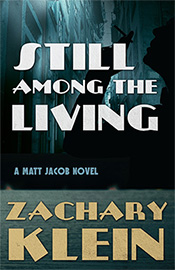by Kent Ballard
I read an article a couple of days ago about a study done on NDEs, near-death experiences. You know the stories some people have said. Looking down on their own body, being yanked through a tunnel towards a brilliant light, seeing dead loved ones, a flash review of their life, and all that stuff. This has been reported by agnostics, atheists, and devout people of all religions.
What the study concluded was there were too many people who came back when resuscitated, telling precise accounts of what went on around them after they died, where people had stood, what they said, what they did, the kinds of noises that medical machines make, to completely ignore. Science doesn’t know how they do this, but it’s now apparently irrefutable some small percentage do. I have a reason to give such articles a moment of attention.
I died in January, 1973. No this isn’t a Halloween story. It’s true.
With the typical perversity of the way things go in my world, I went in for a simple surgery to remove a cyst. I’d had one removed a few years earlier. That time the doc said a couple of shots of Novocaine would handle the pain and I would be conscious for a simple out-patient surgery. Once he started cutting, it turned out the “surface” cyst had wickedly grown much deeper into my body than he realized. Soon things started to hurt. Then hurt badly. More shots followed. Eventually the doc looked into my eyes and said I had to make a choice. I was bleeding out the Novocaine faster than he could shoot it into me. They could either slap a temporary patch on me and finish up the next day in surgery with me unconscious, or—if I could just hold out about ten more minutes—he’d be finished. It was my call.
I was fifteen and there were two cute young nurses assisting him. Naturally I had to be a hero in front of them. It would not be the last time attractive women led me to disaster. When he finished twelve minutes later (yes, I timed the bastard) I hadn’t made so much as a peep, not a whimper, but I was laying in a pool of my own blood and tears.
It gave me a much greater respect for survivors of Civil War surgery.
Nothing like that would or could happen today, but this was over forty years ago in a small one-hospital rural county. I’d had the same doctor all my life. He was our family doctor and knew us all. Medicine had its rough edges then, but there was also an intimacy that medical practice will never have again.
Four years later, another cyst developed and I had the same doc. Neither of us wanted to risk that awful experience again, so he scheduled me as a regular surgery patient with 20th Century advances like real anesthetics and not having to feel that scalpel cut through my living flesh. Cool, I thought. This will be a considerable improvement over the last time. Better living through chemistry.
I was cheerful and joking with all the staff in the O.R. when the anesthesiologist came up and asked, “Ready to take a nap?” He held a syringe in one hand and the tube already in my arm in the other.
Sure. Let ‘er rip. I was looking forward to that warm feeling everyone told me I’d have as the anesthetic coursed up my arm. As he slowly injected me, I thought something was wrong. Everyone said it would be warm, that it would feel good. I felt as if my vein was turning to ice. It hurt. It wasn’t supposed to be like this. I could actually feel the pain spreading up my arm and into my shoulder and he’d already told me as soon as it got to my heart that within two or three beats I’d be out. “Excuse me, guys, but I think something is wro…”
Thud.
We never would have found the truth about what happened had it not been for a woman my mother barely knew at church. She was a registered O.R. nurse and that day just happened to be assigned to help in my operating room. It was two weeks before she called Mom, and even then pleaded with my mother never to tell anyone where she got this information. She could lose her job, but she thought our family should know the truth. The doctors had killed her teenage son.
One minute for them, all was a normal minor surgery on a healthy young man in the prime of his life. The next was pandemonium. The EKG alarm shrilly gave off that long unending beep. My blood pressure dropped to zero. Another alarm went off indicating I had stopped breathing altogether. The surgeon had not yet picked up a scalpel. They first poked a few buttons on the machinery, wondering why they all malfunctioned at once. Then someone said, “Jesus, he just had a heart attack!” The surgeon started pressing my chest, almost lifting himself off the floor. Small town hospitals in ’73 had no defibrillators unless they thought they might be needed. They were the size of refrigerators and horrifically expensive. The anesthesiologist had a tank of oxygen, but not intended for me. He rolled it to my table, then found a hose and connected one end to the tank, the other to some kind of pipe he found laying around, and jammed the pipe down my throat trying to force raw oxygen into my lungs. Someone, the nurse said, pulled open my eyelid and shined a light. “No dilation!” One nurse was told to hold that pipe down my throat while the anesthesiologist went around the other side of the operating table, taking his forearm and leaning forcefully into my belly, causing me to exhale. When he let up the air pressure from the tank partially refilled my lungs. Someone took over for the surgeon and began hammering on my chest for all they were worth. He gasped, “No history of cardiac problems. He’s nineteen years old. Great condition. We’re losing him.” The surgeon and anesthesiologist looked at each other as if for ideas. The man leaned heavily into my abdomen again. A pause. Then again. My mother’s friend could not say how long this went on. She said it was too long and she could feel the others giving up hope. Someone shut off the alarms that were driving them all nuts.
The anesthesiologist yelled at my mother’s friend to take his place shoving in on my belly. When she stepped forward she looked at whatever monitors they had me hooked to. Still no heartbeat, and my body temperature was dropping. The anesthesiologist ran to a cabinet and began filling a syringe with something. Manual respiration, even with pure oxygen, was not working. Chest compressions were not working. She said my fingers and nails were a dead gray-blue and my and face was turning dark as she watched. She remembered me going to church with Mom a couple of times and felt so terribly sorry for her…
My mother later told me she was sitting at my bedside in the hospital the next day. She said I raised up, looked at her and winked, then my head fell back into the pillow. I don’t remember that. When I eventually came around again, my girlfriend was there. She said something and I tried to reply. Good lord! What was wrong with my throat? It felt as if I’d gargled a chain saw. The more conscious I became, the more I hurt everywhere. What was this? Why did I feel as if I’d been in a train wreck? I pulled the sheet down and my chest was one large bruise. More were on my abdomen. None were near the cyst, which apparently had not been touched. It was a little like waking up in a hospital at the beginning of a zombie film, confusing to say the least.
When the surgeon showed up, somewhat sheepishly, he explained the anesthetic given me was sodium pentothal, commonly used in those days. No one (including me) had any prior knowledge that I was among the roughly one in fifteen hundred people who were deathly allergic to that drug. I might experience some “discomfort” from the breathing “device” they used on me. Any danger? No, no, of course not. But they did want to wait a couple of days before knocking me out again, this time with something a bit different. And then he was out the door.
They might as have well have pumped me full of Mop-N-Glow. Boom. Gone. Wink of an eye.
The anesthesiologist knew he could do no harm at that point, so he played on a hunch. He shot me directly with an antidote to sodium pentothal, refilled the same syringe, and gave me a gorilla’s worth of adrenaline. The surgeon was still pounding on me. Several people had been by then. CPR is damned exhausting when you do it correctly.
Beep. A heartbeat.
Everyone looked at each other. Presently, beep. Another one.
A few more seconds and I coughed, choking on that damned pipe they’d jammed and scraped down my throat. Beep…beep…nothing. C’mon, kid. Come on back. Beep…beep…beep-beep-beep.My mother’s friend said she literally watched me come back to life. My color began to change. Blood pressure started to rise. Body temp was still alarmingly low, but they saw it gain a couple of tenths. I don’t know where I’d been but I wound up back where I’d started, and with the same nasty problem too.
When I found all this out I thought of myself as lucky. Looking back, I think I was cheated. I mean, if you’ve gone to all the trouble of dying and scaring the hell out of everyone, shouldn’t you be allowed to float around watching them pound on your dead body for a while? Is an audience with the Creator too much to ask at a time like that? I don’t recall the tunnel ride, but I paid for the ticket. I didn’t even get booted back into my body by an angel. Never saw any dead relatives, no brilliant white light called me, didn’t hear so much as a note on a harp. Bummer. Your average run of the mill death.
The next time I die, I’ll ask for the “A” ticket. Dead relatives, beautiful lights, the whole nine yards. Next time, I want the whole grand tour. Next time I’ll probably stay and not come back. But with my deranged luck I won’t make any bets. The next time I might wind up waking with a sore butt. Who knows what medical wonders they’ll come up with tomorrow?
Me, I don’t care to find out. If I have to pay for the ride, I want to take it. I intend to go careening through space and time and slam sideways into eternity, dust myself off, and have a look around. It sounds like a dandy place. I’ll probably see you there eventually. Look me up and we’ll go have a cold drink. Living through this life was problematic enough. Eternity will take some planning.
 A week or so ago, I got a nice email from a woman who told me how much she enjoyed a recent podcast I’d done, and added that she had bought my Boston Strangler book in its Kindle edition, and was enjoying it. Of course I wrote back right away to thank her.
A week or so ago, I got a nice email from a woman who told me how much she enjoyed a recent podcast I’d done, and added that she had bought my Boston Strangler book in its Kindle edition, and was enjoying it. Of course I wrote back right away to thank her.









